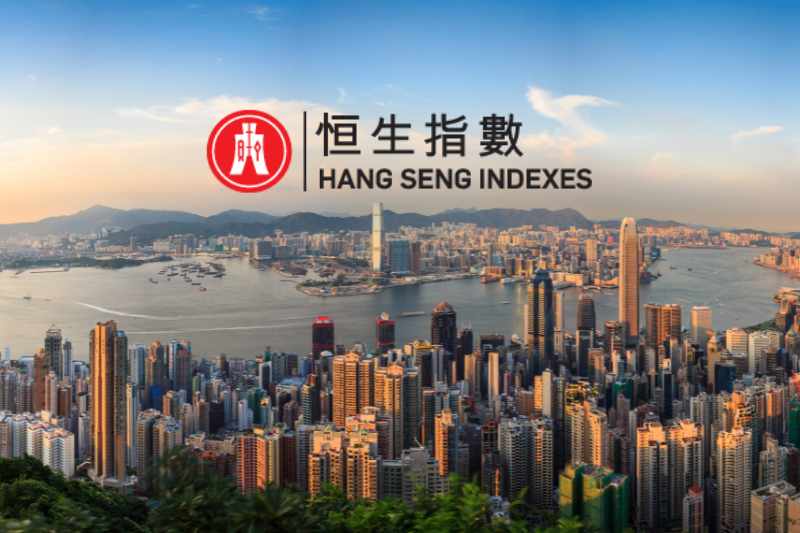In an uncertain economic environment, investors tend to hunker down as they await clarity..
During such times, a stream of dividend income provides stability amid the lingering uncertainty.
Stocks that pay out consistent dividends provide assurance to worried investors.
To pay out dependable dividends, such companies tend to have a strong financial track record and generate healthy free cash flow.
Here we look at three Hang Seng Index (HSI) constituent stocks that pay stable dividends.
1. CK Hutchison Holdings Ltd (SEHK: 0001)
CK Hutchison (CKH) is a diversified conglomerate.
The company has four core businesses – ports and related services, retail, infrastructure, and telecommunications.
CKH’s ports and related services business holds interests in 51 ports around the world while its retail business owns and operates well-known brands such as Watsons and ParknShop.
The infrastructure business includes CK Infrastructure Holdings (SEHK: 1038) which owns assets domestically as well as globally in the UK and Oceania region.
The telecommunications business is known for its “3” network which is active in parts of Europe such as Italy, Sweden, Denmark, Austria, Ireland and the UK.
In the fiscal year 2021 (FY2021), CK Hutchison paid out HK$2.66 in dividends, comprising an interim dividend of HK$0.80 and a final dividend of HK$1.66 as a final dividend.
The conglomerate has paid out around 31% of its earnings as dividends for both FY2020 and FY2021.
The interim dividend for the first half of 2022 (1H2022) increased by 5% year on year to HK$0.84.
CKH’s 1H2022 earnings per share also increased by 5% year on year, thus explaining the increase to interim dividends.
CKH’s improved performance in 1H2022 was mainly due to better economic activity in many of the markets in which CK Hutchison operates.
The ports and services business led the way with a 14% year on year increase to revenue while growth to the retail business recorded a smaller 3% year on year increase.
The revenue growth in these two segments was more than enough to offset the 1% year on year decline in the infrastructure business and the 5% year on year decline for the telecommunication business.
The mixed bag of performance across its four segments reflects the benefits of a diversified conglomerate delivering overall stable revenue and profits.
2. Tingyi Holding Corp (SEHK: 0322)
Tingyi is the company behind China’s largest instant noodle brand, Master Kong.
The company is the market leader in the instant noodles and ready-to-drink tea segments, with a market share of 45.7% and 43.4% respectively.
Tingyi also has an exclusive strategic alliance with PepsiCo (NASDAQ: PEP) for the beverage business in China, manufacturing, bottling, packaging, distributing and selling PepsiCo soft drinks in China.
This strategic alliance is of significance to Tingyi as Pepsi has about a 32% market share in China.
In FY2021, Tingyi paid out US$0.1748 in dividends, consisting of a special interim dividend of US$0.0688, an ordinary final dividend of US$0.053 and a special final dividend of US$0.053.
Tingyi paid a special dividend of US$0.0663 in 1H2022,.
The special dividend for 1H2022 was only 4% lower year on year even though net profit for 1H2022 declined from RMB 2 billion in 1H2022 to RMB 1.3 billion in 1H2021 , a 38% year on year decline.
The profit decline was due to the gross margin sliding by 2.8 percentage points year on year to 28.2% as a result of higher raw material cost.
Fortunately, revenue increased 8% year on year from RMB 35.4 billion to RMB 38.2 billion in 1H2022.
The company has a robust balance sheet with more than RMB 17.1 billion of cash and deposits, allowing it to maintain dividends even during tough times.
As the market leader in instant noodles, Tingyi was able to pass on cost increases to the end consumers even in a tough macroeconomic environment.
This pricing power enables the company to maintain its gross margin and allows it to pay out stable dividends.
3. Industrial and Commercial Bank of China (SEHK: 1398)
The Industrial and Commercial Bank of China, or ICBC, is one of China’s largest banks.
ICBC is also the largest bank in China by total assets with the equivalent of US$5.5 trillion as of May 2022.
In FY2021, ICBC paid out RMB 0.2933 per share in final dividends, higher than FY2020 and FY2019’s payout of RMB 0.2660 and RMB 0.2628, respectively.
ICBC’s most recent results for 1H2022 were resilient as net profit increased 4.9% year on year on the back of higher net interest income, commission income and other non-interest income.
The lender’s loan book increased by 8.1% year on year as it supported major projects such as construction for infrastructure and public services.
The bank also increased financing support for intelligent and advanced manufacturing and the digital economy.
Annualised net interest margin declined 0.09 percentage points year on year from 2.12% in the first half of 2021 to 2.03% in 1H2022 as ICBC lowered financing costs to support the Chinese economy.
The loans made were of robust quality as the allowance for non-performing loans ratio declined marginally from 1.42% in 1H2021 to 1.41% for 1H2022.
Despite its large asset base, ICBC was still able to grow its profits and increase dividends during an uncertain economic environment and will likely continue to deliver stable dividends for the foreseeable future.
Not sure where to park your money in 2023? Give dividend stocks a try. You don’t need a lot of capital to start a stream of passive income. Our latest guide will show you how to invest and where to find the juicy dividends in SGX. Click here to download the report for FREE.
Follow us on Facebook and Telegram for the latest investing news and analyses!
Disclosure: Alex Yeo does not own shares in any of the companies mentioned.





